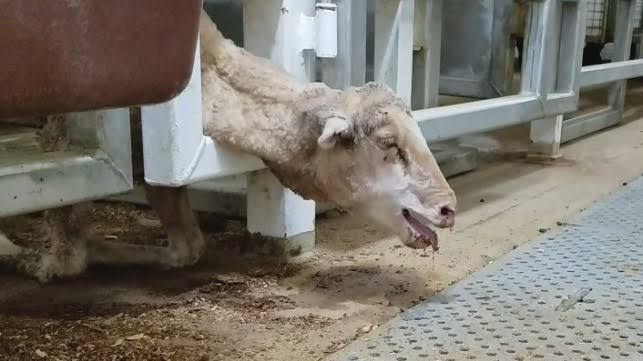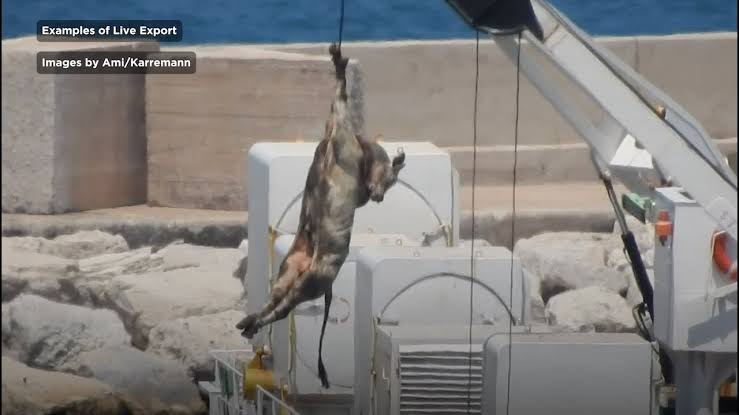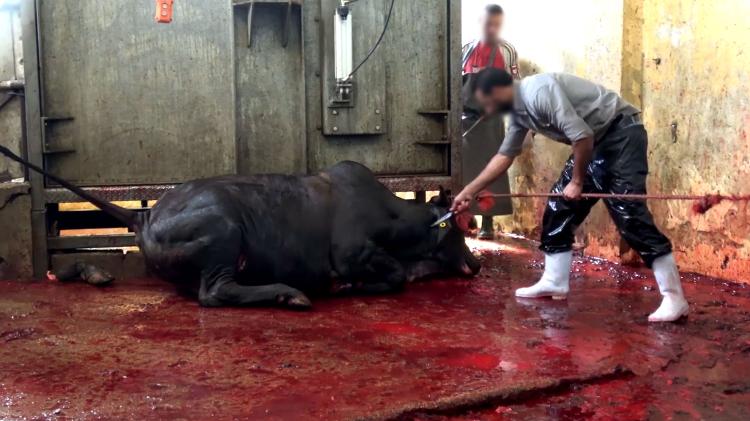RIO DE JANEIRO, BRAZIL – The investigation was carried out by Mercy for Animals to pressure Congress to approve a bill banning the sale of live animals for slaughter in other countries.
The footage shows how animals are brutally handled in some major importing countries. In the images, animals often show being hoisted by the hoof.
There are also videos showing animals having their necks and tendons cut while they are still conscious, being stabbed, getting kicked and having their tails violently twisted.
Project to veto export
Mercy For Animals calls on the Senate to pass Senate Bill 357/2018 by Senator Rudson Leite, which would ban the export of live animals for slaughter in other countries. The proposal is currently in the Chamber’s Environment Committee waiting for Senator Omar Aziz’s report.
However, approval may run into difficulties in the Chamber. In December, the Committee on Agriculture and Land Reform ruled for the rejection of the bill. The cattle bench, as it is called, have already signaled that they are against the measure.

The Agriculture Committee’s opinion claims that the export ban “is not the best solution to the issue”.
“Banning the export of live animals for slaughter would entail an annual loss of more than R$1 billion (US$250 million) for national agriculture, which, according to preliminary data from the 2017 Agricultural Census, ensures employment to more than 15 million people throughout Brazil. This, at a time when the country is facing a serious economic crisis, with high unemployment,” he claims.
Still according to the text, there should be monitoring and denunciations of animal abuse, but says that “the disrespect to animal welfare standards is by no means the rule”. “The producer is the one most concerned with the welfare of the marketed animals. Allowing animals to become stressed, injured or poorly fed represents an economic loss for the cattle rancher and other members of the production chain,” he claims.
Omar Aziz’s advisor advised the repprter that he was unable to reach the advisors overseeing the bill and that he was unaware of the senator’s position on the case.
The Federal Prosecutor’s Office argues that it is illegal
Last year, the export of live animals was questioned by the MPF (Federal Prosecutor’s Office), which considered the practice unconstitutional.

In a May 2018 opinion, the prosecutor general Sérgio Medeiros said it was “the shameful disregard of any and all standards of animal protection, both national and international, in exchange for profit, at the cost of pain, suffering and cruelty,” when discussing cattle exports.
According to the US Department of Agriculture, 5.7 million live animals should be exported around the world.
In 2018, Brazil was the third largest exporter of live animals in the world. There were 810,000 cattle, a record according to Mercy for Animals.
In the same year, Turkey was the country with the highest number of live animals purchased, accounting for 70 percent of all cattle exported. Egypt (13 percent) and Lebanon (seven percent) come in the sequence. Also in 2018, the main state of origin of exported animals was Pará, with 57 percent of the total. Rio Grande do Sul (21 percent) and São Paulo (16 percent) follow.

Source: UOL

